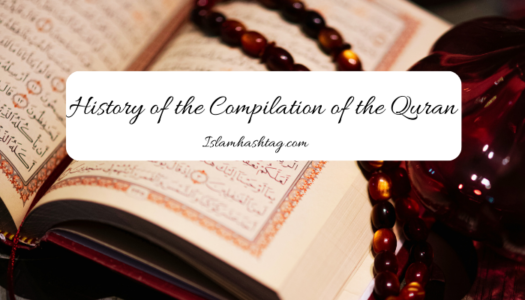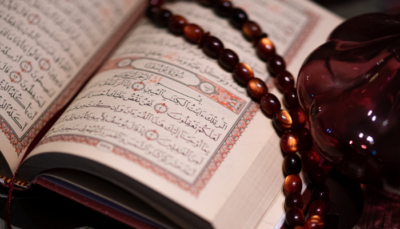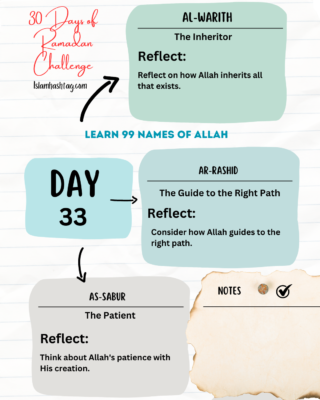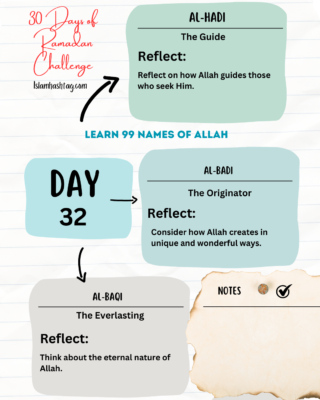The History of the Compilation of the Quran: From Revelation to Preservation
In sha Allah today we will talk about the History of the Compilation of the Quran. We will talk about this topic from the book The History & Compilation of the Qur’an: An Exposition of the Authenticity & Inimitability of the Qur’an by Shaykh Faheem.
The Revelation and Early Preservation
The Quran was revealed to Rasul Allah Sallalahu alaihe wa sallam over a span of 23 years, beginning in 610 CE. This revelation came in various stages, addressing the evolving needs of the Muslim community. Each verse (ayah) and chapter (surah) was initially memorized by Rasul Allah Sallalahu alaihe wa sallam and his companions, a practice known as hifz, which was crucial for preserving the text in its exact form.
In addition to memorization, Rasul Allah Sallalahu alaihe wa sallam also had scribes who recorded the revelations on various materials such as palm leaves, pieces of leather, and bones. These records were vital for documenting the Quran as it was revealed. The practice of writing down the Quranic verses ensured that they were not lost or altered.
The Compilation During Abu Bakr (ra)’sCaliphate
The first significant step towards compiling the Quran into a single volume occurred during the caliphate of Abu Bakr (Radi Allahu Anhu), the first caliph after the passing of Rasul Allah Sallalahu alaihe wa sallam. The Battle of Yamama in 633 CE, where many memorizers of the Quran (hafiz) were martyred, highlighted the need for a unified, written compilation of the Quran. Umar ibn al-Khattab (Radi Allahu Anhu) approached Abu Bakr (Radi Allahu Anhu) with the proposal to compile the Quran into one book to ensure its preservation.
Abu Bakr (Radi Allahu Anhu) agreed and appointed Zaid ibn Thabit (Radi Allahu Anhu), one of Rasul Allah Sallalahu alaihe wa sallam’s primary scribes, to oversee this monumental task. Zaid (Radi Allahu Anhu) collected the Quranic verses from various sources, including written materials and the memories of Rasul Allah Sallalahu alaihe wa sallam’s companions. This compilation resulted in a single manuscript, which was kept with Abu Bakr (Radi Allahu Anhu) during his lifetime, and later with Umar (Radi Allahu Anhu). Upon Umar’s (Radi Allahu Anhu) death, the manuscript was entrusted to his daughter Hafsa (Radi Allahu Anha), who was also one of Rasul Allah Sallalahu alaihe wa sallam’s wives.
The Preservation Practices and Dialectal Variations
During this period, the Quran was preserved through both memorization and written records. However, as Islam spread rapidly across the Arabian Peninsula and beyond, new Muslim communities, who were often not native Arabic speakers, began reciting the Quran in different dialects. This diversity in recitation caused some variations in the way verses were pronounced and understood.
The Quran was revealed in the dialect of the Quraysh tribe, the tribe of Rasul Allah Sallalahu alaihe wa sallam. Given the linguistic differences among various tribes in Arabia, there were different recitations and interpretations of the Quranic text. This dialectical variation, though minor, could potentially lead to confusion and disputes among the growing Muslim population.
Read – The seven Qirat of Quran
The Need for Standardization
By the time of Uthman ibn Affan’s (Radi Allahu Anhu) caliphate, Islam had expanded significantly beyond the Arabian Peninsula. This expansion brought together diverse Muslim communities with differing recitations of the Quran. Hudhayfah ibn Al-Yaman (Radi Allahu Anhu) observed the differences in recitation between the people of Shaam and the people of Iraq during their campaigns and feared that these variations might lead to discord, similar to what had occurred among the Jews and Christians regarding their scriptures.
Hudhayfah (Radi Allahu Anhu) approached Uthman (Radi Allahu Anhu) with the concern that action was needed to unify the recitation of the Quran and prevent divisions within the Muslim community. Uthman (Radi Allahu Anhu) responded by ordering the compilation of a standardized version of the Quran.
The Compilation and Standardization Process
Uthman (Radi Allahu Anhu) sent a request to Hafsa (Radi Allahu Anha) to send the manuscripts of the Quran that had been compiled during Abu Bakr’s (Radi Allahu Anhu) time. Uthman (Radi Allahu Anhu) then appointed a team of scribes, including Zaid ibn Thabit (Radi Allahu Anhu), Abdullah ibn Az-Zubair (Radi Allahu Anhu), Saeed ibn Al-Aas (Radi Allahu Anhu), and Abdur Rahman ibn Haarith ibn Hishaam (Radi Allahu Anhu), to produce copies of the Quran from these manuscripts.
To ensure uniformity, Uthman (Radi Allahu Anhu) instructed that if there were disagreements on any textual points, the text should be written in the Qurayshi dialect, as the Quran was originally revealed in that dialect. This measure aimed to standardize the text and maintain consistency across the expanding Islamic empire.
The Burning of Other Manuscripts
Once the standardized copies were produced, Uthman (Radi Allahu Anhu) ordered that all other Quranic materials be burned. This decision was made to prevent future discrepancies and confusion among the Muslim community. The aim was to preserve the unity of the Quranic text and avoid the potential fragmentation that could arise from having multiple versions or dialects.
The burning of the existing copies has been a subject of controversy among some. Critics argue that it was a drastic measure, but from a historical and scholarly perspective, Uthman’s (Radi Allahu Anhu) actions were driven by the need to safeguard the Quran’s authenticity and prevent the discord that could arise from differing recitations. The precautionary measures were taken to ensure that the Quran remained a unifying force for the Muslim Ummah.
Addressing Concerns About Verse 33:23
An interesting point of discussion is the incident involving verse 33:23 of Surah Al-Ahzab. According to the narration, this verse was found only with Hadhrath Khuzaymah ibn Thaabit (Radi Allahu Anhu) during the compilation process. Critics have questioned why this verse was not found with others.
Hadhrath Khuzaymah (Radi Allahu Anhu) had a unique status, as Rasul Allah Sallalahu alaihe wa sallam had once affirmed his testimony as equivalent to two witnesses. This distinction was crucial during the compilation process. The verse in question was well known and memorized by many, but it was found in written form only with Hadhrath Khuzaymah (Radi Allahu Anhu). This illustrates the thoroughness of the compilation process and the rigorous standards applied to verify the authenticity of every verse.
Conclusion
The compilation of the Quran by Uthman (Radi Allahu Anhu) marked a significant milestone in preserving the Quran’s authenticity and unity. Through meticulous efforts and strategic decisions, Uthman (Radi Allahu Anhu) ensured that the Quran remained unchanged and consistent across the growing Muslim world. This standardization preserved the Quran’s integrity, providing a unified text that continues to guide and inspire Muslims worldwide. The actions of Uthman (Radi Allahu Anhu) reflect a profound commitment to preserving the divine message of Islam and ensuring its clarity for generations to come.
Want to learn more on this topic? Read the book (Amazon)
Discover more from Islam Hashtag
Subscribe to get the latest posts sent to your email.






